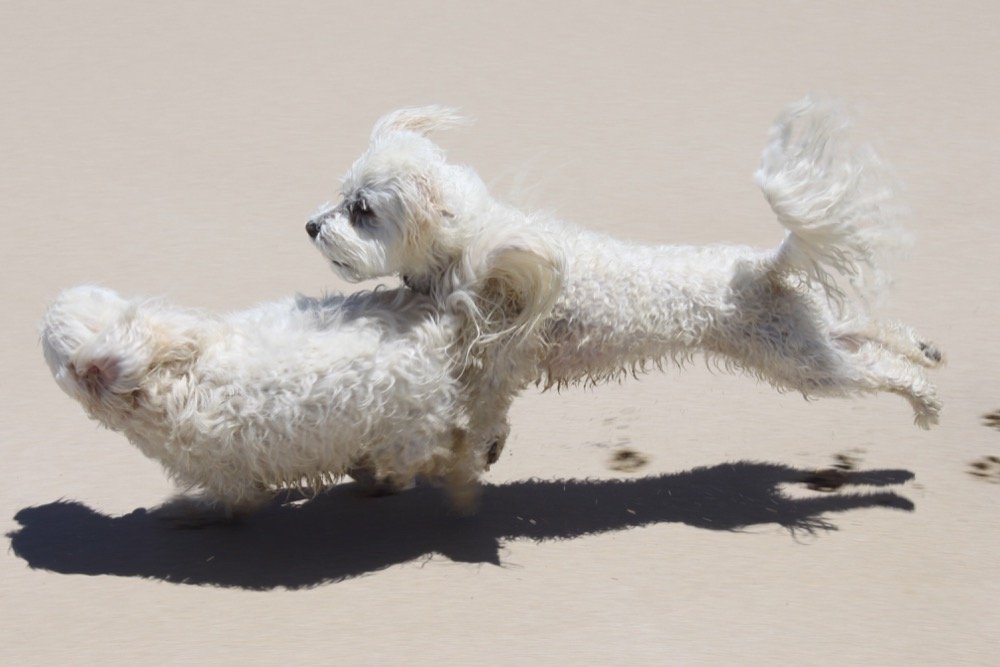One persistent approach to training dogs is the notion that you must dominate them through fear. This is the wrong approach. You cannot dominate anyone through fear, instead, you must dominate through leadership.
Make love, not war
At root, the idea that the leader of dogs must also be the fiercest wolf has become a powerful trope that affects how humans see their relationships with dogs. That’s not so true of most experienced dog owners, but certainly some new and inexperienced owners, and many who have little personal knowledge of these animals think dominance is how it works.
It’s an incredibly dangerous idea as it encourages people to see dogs as scary, dominant, frightening creatures, when in fact nothing could be further from the truth. That dog is not going to bite you because it is a dog. It will bite you because it is not getting effective leadership and feels unhappy. So, how do we lead dogs more effectively?
The law of the jungle is false
Once upon a time people thought of dogs like wolves. They thought the behaviour was the same, and that wolves followed a pack rule in which an alpha dog became pack leader by bossing everyone else. This model meant the alpha wolf would fight, bite, grow, and snarl to show its dominance and remain supreme, and that younger wolves would frequently take on the leader to seize control of the pack.
That’s why for many years people believed that good dog care required owners to dominate their dogs. This led to use of cruel tools like zap collars and choke chains, as well as cruel techniques such as forcing dogs onto their back and holding them there, and liberal use of beating.
These dogs aren’t trained
This worked to some extent. It is true that scared dogs will learn to behave, but not in a positive way, which means you end up with a mixed up dog.
However, a scared dog is tense, tends to become more reactive, and because it only knows what not to do in order to avoid pain, is not as capable of making good decisions on its own account. A dog trained this way is far more likely to make mistakes.
See it this way – it knows what not to do, but has no confidence or good example to understand what it should be doing. It doesn’t know how to behave, it only knows how not to.
No wonder it makes mistakes.
Why it doesn’t work
Dogs are social creatures. Dogs and wolves are pack animals who care about their families and strive to look after them.
Closer analysis shows that this kind of dominance was based on studying wolves in zoos. The thing is, those wolves in those zoos weren’t from the same packs, which meant they were thrown together into small spaces, stressed out, separated from their families. They fought because they were scared, frightened, hungry.
These days wolf watchers have been able to make much better observations of natural wolf behaviour in the wild. GPS and tracking devices let scientists and behaviouralists track packs of wolves and guess what they’ve found?
Wolves are social creatures.
They live together in groups very happily. Older wolves are respected by the pack both because they are the parents of those packs, and also because they have more life experience.
They eat together and share the work – hunting, guarding, puppy care and so on — concerned in keeping the family. Most of the time they get along, and when they don’t most quarrels are swiftly resolved (they usually sound much worse than they actually are).
In the pack, wolves aren’t dominated, they simply work together and defer to the smartest, oldest, and usually most intelligent leader.
That’s what you need to be to your dog.
Be the change
You don’t want to become the scary human they live with who beats them for reasons they don’t really understand.
You want your dog to see you as an alpha because you are confident, supply the food, treat them well, and reward good behaviour. You want them to see you as head of the pack, not because you want to bully them until they agree to do what you want them to do, but because they love and trust you and want to support you, which means doing what you tell them to do.
In a nutshell, that’s the whole theory behind the training resources on this site – we’re about reward-based training and how to make our dogs not only happy, but also the very best dogs they can be.
To take this one step further: Dogs that know how to behave know how to do so even when you’re not around. Given a little happiness and security you will have a dog that other dogs also respect, just wait, and see. But first of all, forget all that you think you know about dominance theory and have an open mind to the power of love and reward on these supremely empathic, social, and deeply rewarding pack animals.




